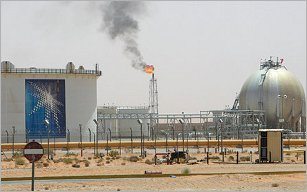Gulf oil producers are expected to pump more than US$58 billion into projects over the next five years to expand their power generation capacity to meet growing domestic demand, according to an official Arab report.
Investments
The investments account for nearly 46 per cent of the total capital required for electricity development projects in the Middle East and North Africa (MENA), said the report by the Arab Petroleum Investment Corporation (Apicorp).
The six Gulf Co-operation Council (GCC) countries, which control over 40 per cent of the world's proven oil resources, will also add nearly half the expected additional power general capacity in the region, said the report.
The Dammam-based Apicorp, an affiliate of the 10-nation Organization of Arab Petroleum Exporting Countries, estimated the total capital in power generation in Mena at $125.8 billion during 2012-2016 to add about 106.4 GW of electricity.
Investments
"This increment, which represents 48 per cent of the 2010 estimated capacity of 220GW, justifies the huge capital investment found in the present review," it said.
"A regional breakdown shows that about 46 per cent of that expansion is expected in the GCC, which remains the fastest growing area.
This should come as no surprise, taking into account its record rates of urbanisation and the massive requirements for water desalination and air conditioning.
"The study put investments in such projects at around $58.2 billion in the GCC, $27 billion in Mashreq (east) Arab nations, $25.8 billion in Iran, $13 billion in Maghreb (west) Arab countries and nearly $1.8 billion in other Arab states."
Critical
"In the current socio-political context, power/water has emerged as a critical sector featuring prominently on top of Mena policy agendas," it said. It said that as a result of high population growth, record levels of urbanization, sustained economic growth and pressing needs for air conditioning and sea water desalination, many countries in the region have been struggling to meet demand.
"They now face an even steeper uphill struggle as phasing out price subsidies to rein in excess demand growth has become extremely tricky... accordingly, power generation capacity is projected to continue growing at an unrelenting rate of 7.7 per cent per year during the period 2012-2016.
Demand growth
"Apicorp said raising such large amounts of capital would be most challenging in the current economic and political conditions in the region and the world.
"With domestic and foreign private investment somewhat retreating, governments must pursue two tracks simultaneously and with determination," it said.
"On the one hand, and as long as the allocation of public resources reflects their policy priorities, they should step in to fill some of the financing gap. On the other hand they have to step up their efforts to provide the assurances critical to regaining the lost momentum of private investment."
The report showed the GCC is projected to record the highest demand growth of around 8.5 per cent in the medium term.






